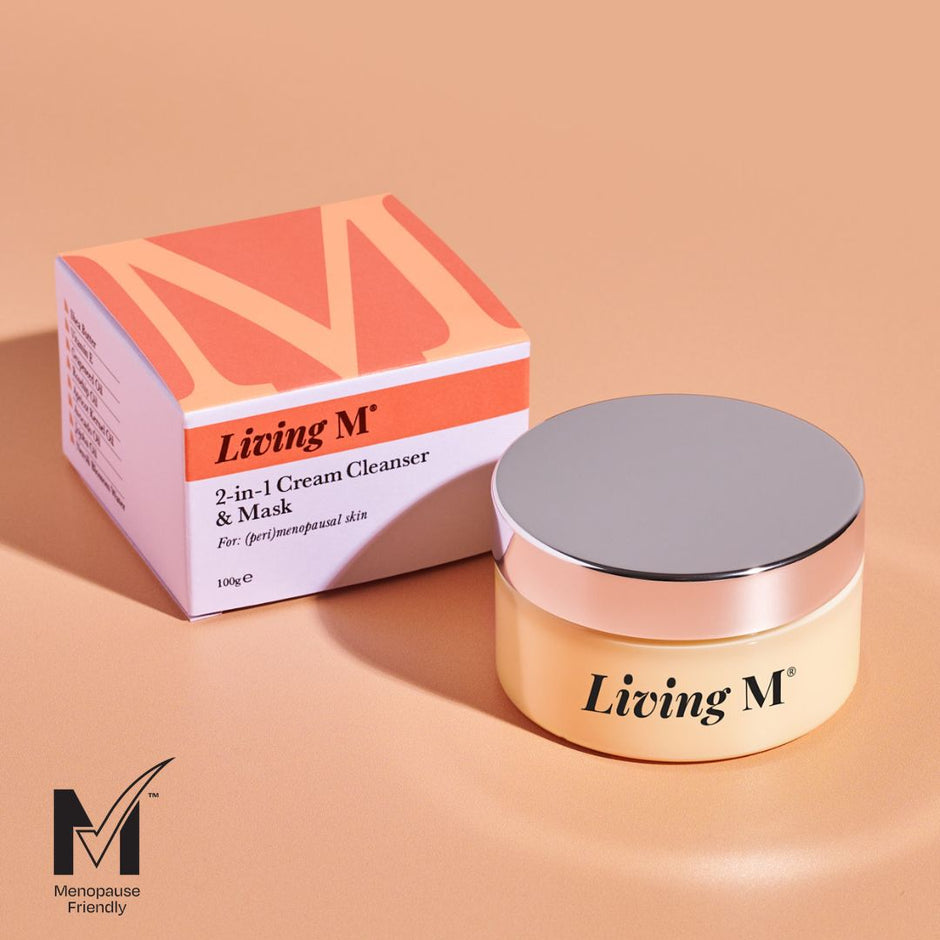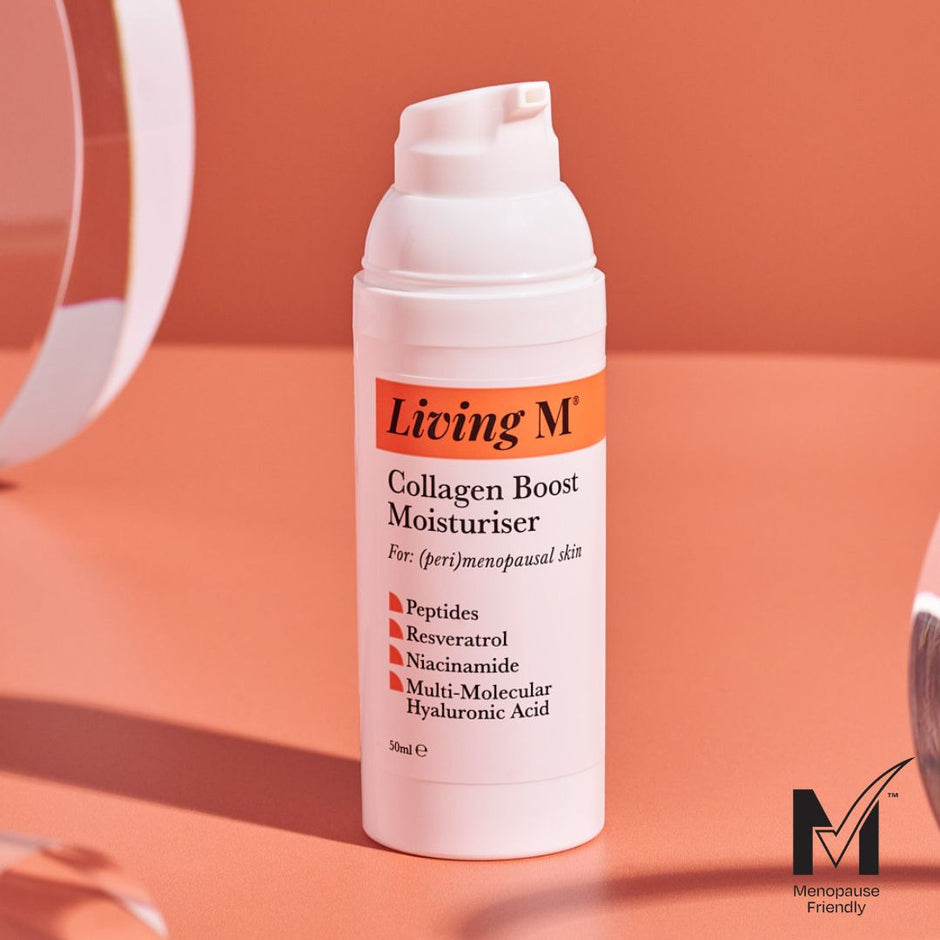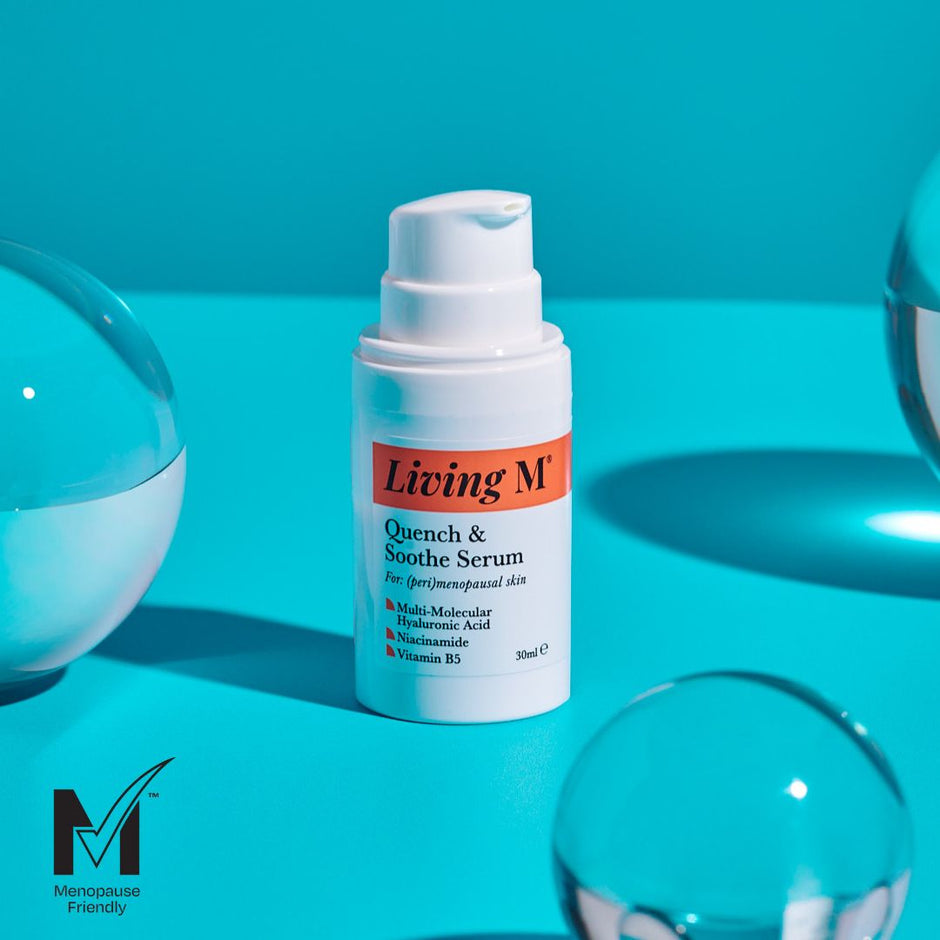Think back to puberty, pregnancy, or those breakouts you get right before your period – chances are you’ve already experienced the way our hormones can affect our skin. Now it’s time for us to understand how your hormones impact your skin during menopause.
The hormonal shifts of menopause are dramatic - it can often seem as though our skin has changed overnight. You may think this is caused by simply ageing, but your changing hormones have a far greater impact on the condition of your skin. Perimenopause can be a hormonal rollercoaster, to put it mildly, and these hormonal shifts can cause disruption to our skin’s structure. So, what exactly are these hormones, what do they do and what happens to our skin as they decline?
Hormones 101
As we head towards menopause three key hormones are affected - oestrogen, progesterone, and testosterone. Hormones are chemical messengers that co-ordinate the activities of different cells and tissues in our bodies. They affect the regulation of so many essential functions in our bodies, including our skin.
Oestrogen
The key hormone we talk about in relation to the menopause is oestrogen. Produced in the ovaries, it is one of the female sex hormones. Oestrogen begins to rise in puberty, fluctuates during your menstrual cycle but remains at a near constant level until we enter perimenopause.
Oestrogen affects the structure of the skin – it is responsible for the production of collagen, elastin, natural oils, and hyaluronic acid - all essential for healthy, great-looking skin. When oestrogen levels start to decline, the effect on skin can be significant. Collagen is the structural protein responsible for skin’s elasticity – 30% will be lost in the first 5 years of menopause. As collagen production depletes in menopause, skin becomes drier, duller, and thinner with a weakened skin barrier. Cell turnover starts to slow rapidly, and skin is visibly less plump and radiant.
Elastin production is also regulated by oestrogen and impacted by depleted levels in menopause. Another critical skin protein, it provides elasticity and strength to skin, so when elastin levels decline skin starts to lose its plumpness and firmness and can start to sag.
Depleted levels of oestrogen also cause hyaluronic acid levels in the body decline. Despite the acid in the name, it’s not an exfoliant. It’s a sugar molecule produced naturally in the body that can hold up to 1000 x it’s weight in water to keep skin cells hydrated and plump. It functions like a sponge in the body and binds water to the skin which is why it is known as “the moisture magnet”. As a result, skin becomes parched and dehydrated with a weakened skin barrier.
Progesterone
Progesterone is a sex hormone produced in the ovaries and plays a key role in menstruation and the reproductive system. It also affects skin as it stimulates the production of sebum and the oil glands in the skin. Progesterone is key for maintain healthy skin and that glowing look as it moisturises and protects the surface layer of your skin. It’s why you look extra radiant during pregnancy when progesterone levels increase. In menopause, progesterone declines and skin is less able to moisturise itself leaving it dull and lacking in glow. You need extra moisture and radiance boosting ingredients to relieve dryness and restore glow.
Testosterone
You might think of it as a male hormone, but testosterone plays a key role in the female body too. It helps maintain muscle and bone strength, libido, and cognitive function. As we go through menopause these hormones become unbalanced. A drop in oestrogen can lead to an increase in androgen (male) hormones like testosterone and this can trigger menopausal acne. Different to the type of breakouts experienced in puberty this affects the lower part of the face along the chin and jawline rather than the T-zone.
Unbalanced hormones in perimenopause are also thought to be a trigger for rosacea – a chronic inflammatory skin condition that mainly affects the face. The main symptoms are facial flushing, irritated skin, and pimples. Rosacea can flare up in menopause due to the fluctuations in hormonal fluctuations. These hormonal shifts also cause your skin barrier to weaken and vital moisture to be lost. External stressors can get into the skin causing irritation, redness and sensitivity.
What Can Help Your Skin In Menopause
Changing hormone levels in menopause have a significant impact on our skin. It can often feel as if your complexion has changed overnight. Many women find that the products they have used before stop working or, worse still, start to irritate skin. In menopause, you need a more targeted approach with well-formulated products with the right ingredients to tackle hormonal skin changes. Here’s how to get great skin in menopause.
Protect Your Collagen
You need to combat the effect of declining oestrogen by protecting and boosting collagen levels in your skin. Look for ingredients that can actively stimulate collagen production.
Peptides are an intelligent skincare ingredient that send messages to your skin to produce more collagen. Use a great antioxidant that will give protection to your skin and restore that much needed glow and luminosity. Living M Collagen Boost Moisturiser is a multi-benefit moisturiser formulated with signal peptides, nourishing natural butters and resveratrol. Found in the skin of red grapes, resveratrol is a super effective antioxidant that also acts as a phytoestrogen to mimic the effects of oestrogen on the skin. Use daily and nightly for plumper, glowing, firmer skin.
Hydrate, Hydrate, Hydrate
You need a serious hydration boost to replace lost moisture from the skin’s surface. Use super-hydrators like hyaluronic acid and glycerin which act as humectants and draw water into the skin. Living M Quench & Soothe Serum is formulated with three different types of hyaluronic acid and glycerin for an intense hydration boost.
Boost your glow
Loss of radiance and glow is one of the biggest skin complaints we hear from our customers. Look no further than Niacinamide. It has so many benefits for menopausal skin it’s hard to know where to begin (read our Menopause and Niacinamide blog for all of them) but boosting radiance without causing irritation is a big one. Niacinamide has a super effective brightening effect on skin but unlike other radiance boosting ingredients, like Vitamin C, it is well tolerated and won’t cause irritation, redness, or sensitivity. Used over time, it can also help to control hormonal breakouts. Living Skincare is all formulated with niacinamide as a base ingredient.
Nourish to relieve skin dryness
You need nature’s super-moisturisers to relive the type of extreme skin dryness caused by menopause. Our Collagen Boost Moisturiser is blended with super nourishing natural butters avocado and cupuaçu to replenish lost moisture at a deeper level.
Avoid Irritation
Because your skin is more prone to sensitivity and dryness as you approach menopause, it’s important to avoid anything that is likely to irritate skin. Living M skincare has been formulated without any ingredients that are known to irritate skin such fragrance, essential oils, drying alcohols, and sulphates. These ingredients are in many skincare products, but they are best avoided in menopause or for anyone with any kind of skin sensitivity.
The hormonal shifts of menopause have a significant impact on your skin but with the right skincare regime you can take good care of your skin to give it back what the menopause takes away.
Simplify Your Skincare Routine
It can be really tempting to try all the latest products and layer lots of different ingredients, adding more steps in your skincare regime, but this can overload your skin and cause more problems than it solves. In perimenopause, your skin becomes much weaker and prone to sensitivity, so simplifying your routine is a must. Scale it right back to avoid irritation and focus on multi-benefit products that will give your skin everything it needs.




